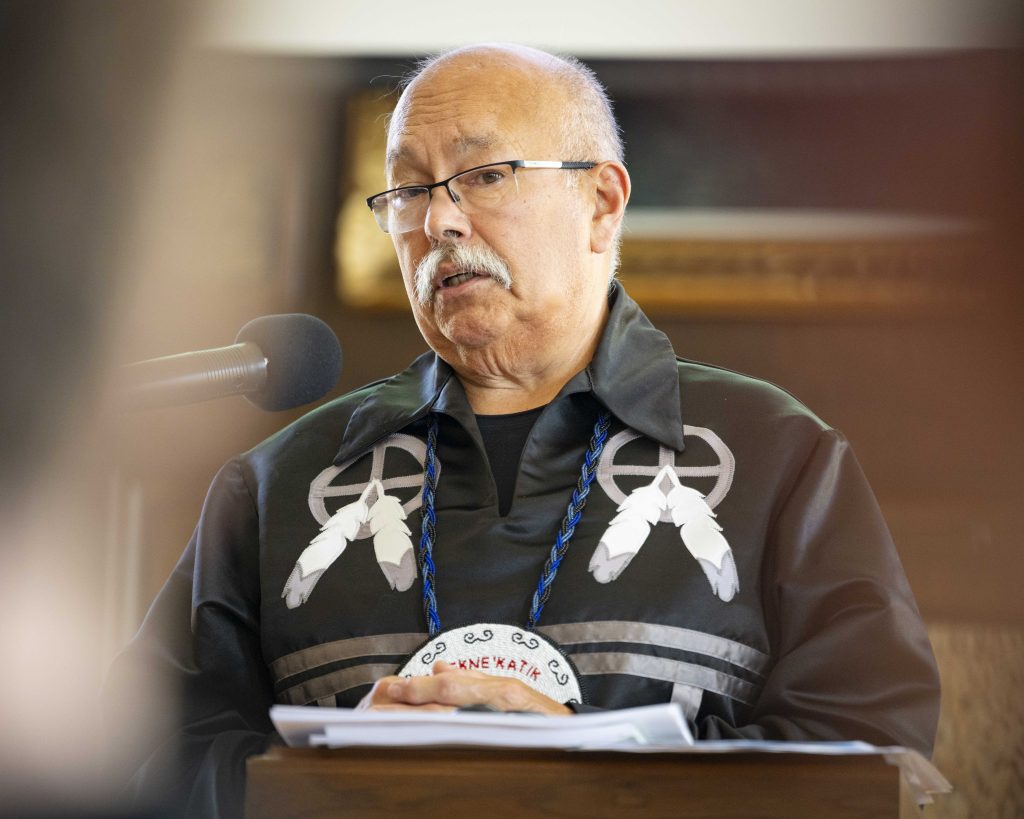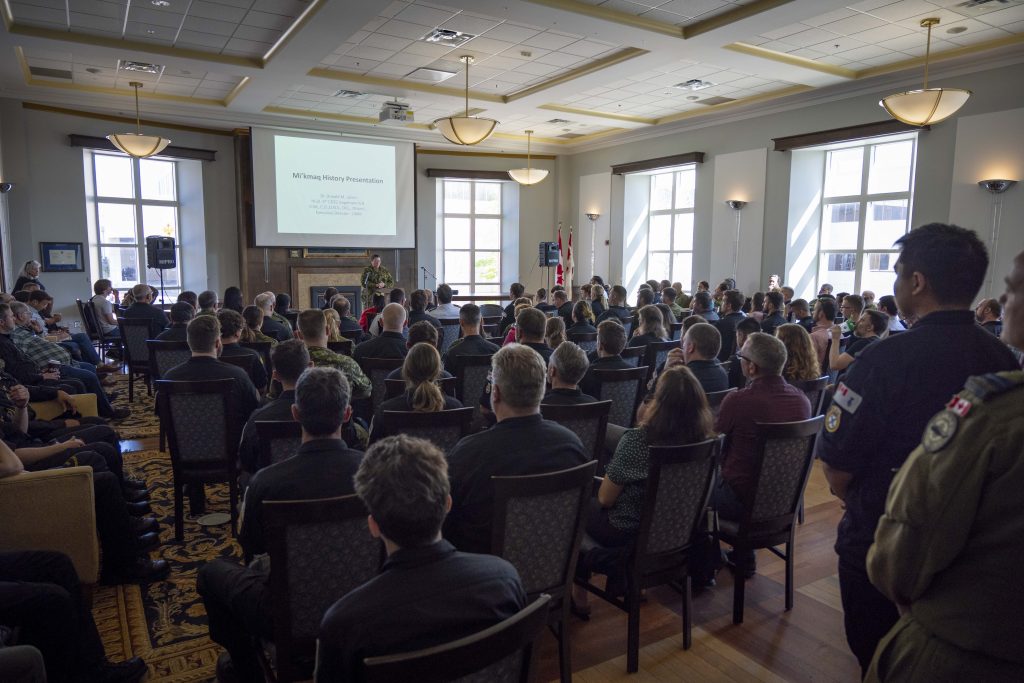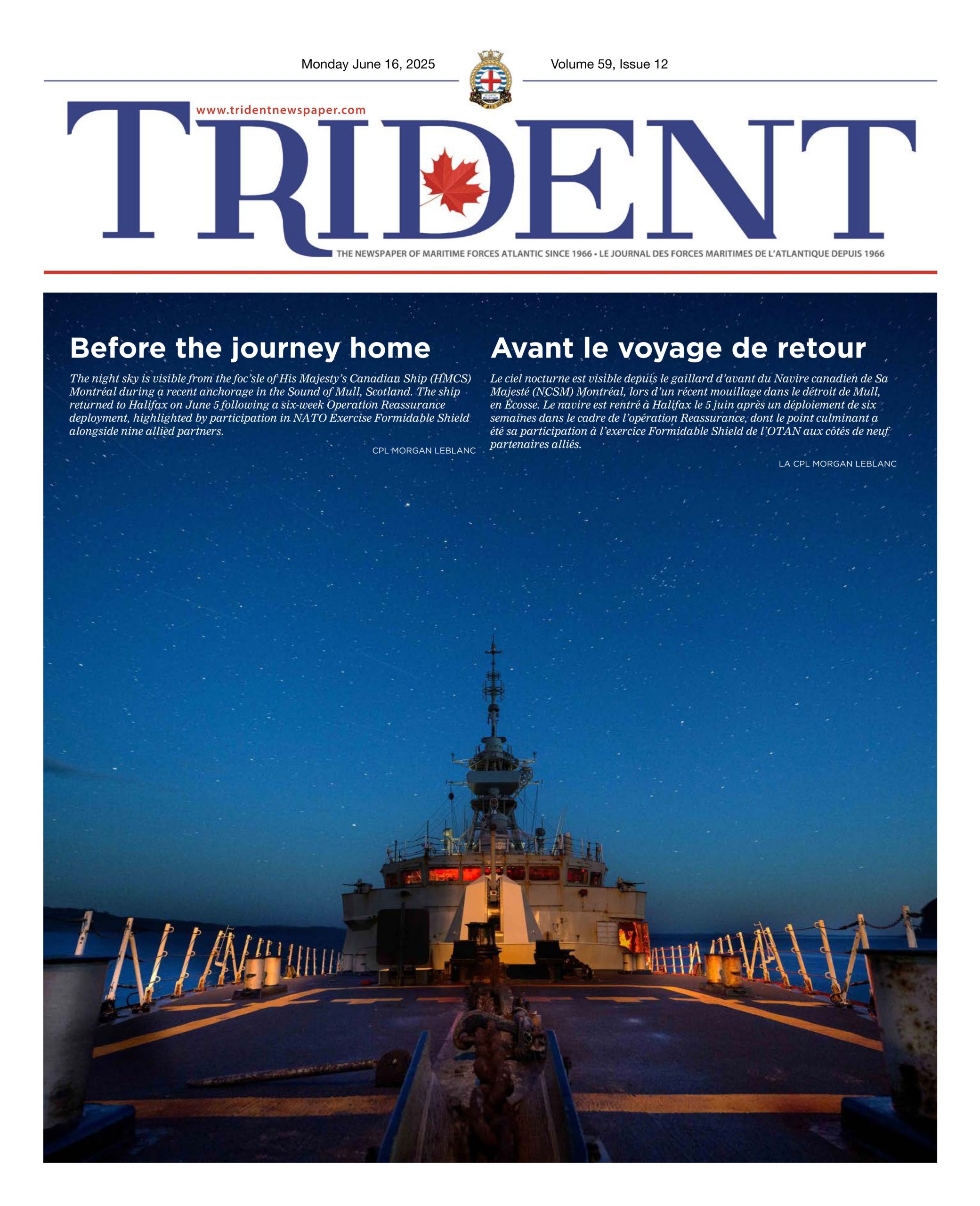
Presentation touches on Mi’kmaq history, reconciliation
By Nathan Stone,
Trident Staff
The history of the Mi’kmaq nation was the focus of a presentation to a large crowd at the Juno Tower ballroom at Canadian Forces Base (CFB) Halifax on May 23.
The event was held to mark Indigenous Awareness Week on base and was organized by the Atlantic Defense Indigenous Advisory Group. Honorary Colonel (HCol) Donald Julien, a member of the Mi’kmaw Grand Council and honorary Colonel for 5th Canadian Division, was the special guest and keynote speaker for the day.
He spoke on the work of the Mi’kmaw Grand Council and his place within it, noting that it is the oldest governing body in the region. He said the history of the Grand Council and the Mi’kmaq people date back at least 13,500 years.
His lecture touched on the Mi’Kmaq way of life, customs, government, land, language and historic relationships with nonindigenous Europeans and Canadians. Interspersed throughout were anecdotes from HCol Julien’s service in the Canadian Army.
He also highlighted restrictions that limited how Indigenous people could serve during the First and Second World Wars, notably their exclusion from Navy and Air Force roles. He explained that many Indigenous people traveled to the United States for better opportunities to enlist.
“I have seven people from my community who joined the Marine Corps.”
Despite the barriers, thousands of Indigenous people served and fought with the CAF from the First World War onwards, he added.

HCol Julien also addressed the evolution of Indigenous rights, from the Peace and Friendship treaties with Britian in 1725 to the 94 recommendations of the Truth and Reconciliation Committee’s final report in 2015.
He described the long struggle that the Mi’kmaq and other Indigenous Peoples have faced in having their treaty rights recognized by the Canadian government. Recalling the flashpoints of Burnt Church, the Donald Marshal trial and the Oka crisis, HCol Julien said that the federal government had long offered “empty promises” to Indigenous People in Canada.
“There’s a lot that happened before Truth and Reconciliation started.”
HCol Julien also serves on the board of directors for a future Mi’kmaq cultural centre and museum being planned in Debert, with a mission to preserve and promote Mi’kmaq history and culture. As part of its telling of the of the Mi’kmaq story, the centre will draw from HCol Julien’s own work documenting the history of his people.
“It’s going to bring history back to our people and it’s going to bring pride to our people,” he said.
Ojibway elder and Honorary Captain (Navy) Debbie Eisan was also on hand; she spoke on the importance of Indigenous traditions and called on the CAF to continue working to create a more open and inclusive environment for its Indigenous members. She noted the opening of a sweat lodge at 12 Wing Shearwater as a recent example of progress.
“Create a future where Indigenous people are embraced,” she said.





